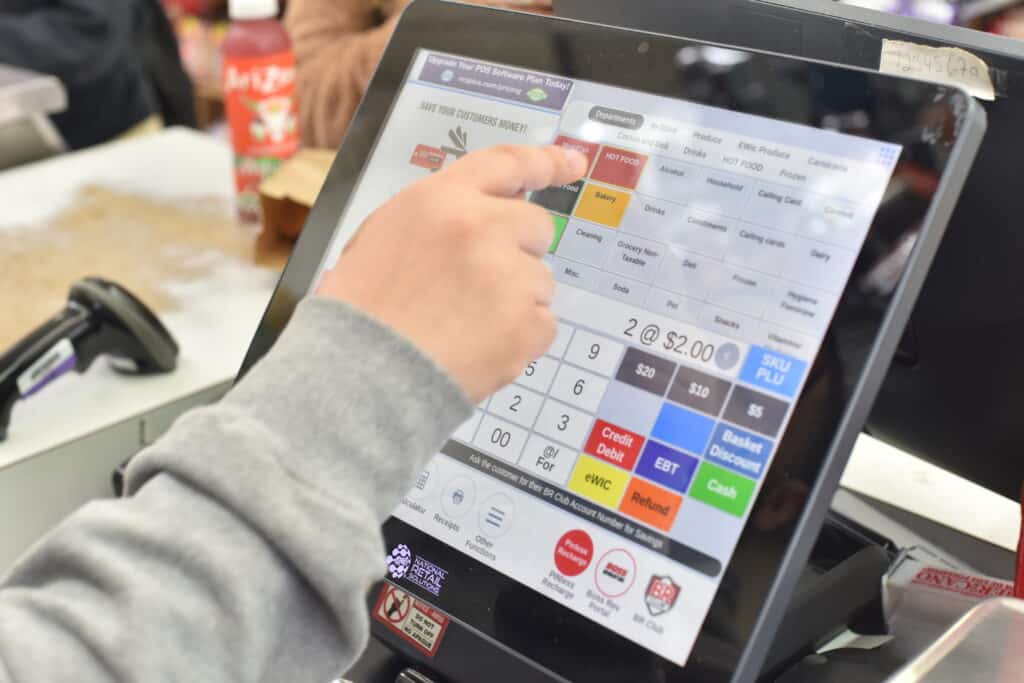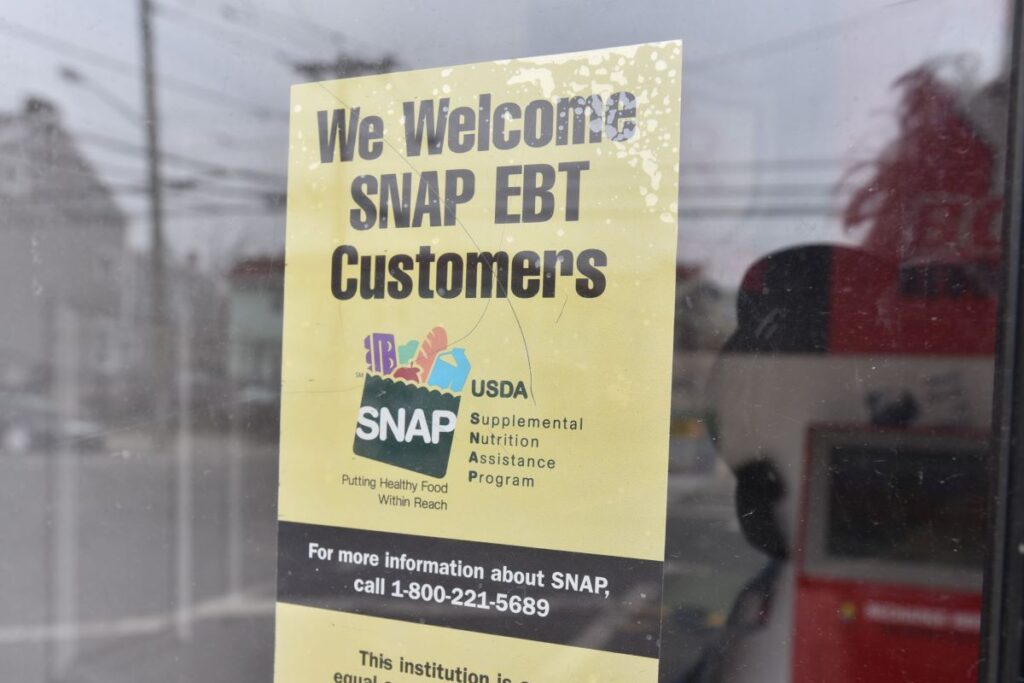Opening a deli requires careful planning, a clear vision, and a deep understanding of your target market.
In this guide, we’ll dive into the essentials of how to open a deli, providing you with the know-how to get started on this fulfilling entrepreneurial journey.
What Do You Need to Open a Deli Business? (Checklist)
Opening a deli business is exciting but requires careful planning and attention to detail. To ensure a smooth start, it’s essential to have a comprehensive checklist. Here are the key elements you must consider:
| Checklist Item | Details |
| Business Plan | Outline your deli’s concept, target market, financial projections, and growth strategies. |
| Legal Requirements | Obtain necessary licenses and permits, including food service licenses, health department certifications, and a business license. |
| Location | Choose a strategic location with high foot traffic, near offices, shopping centers, or residential neighborhoods. |
| Suppliers and Ingredients | Establish relationships with reliable suppliers to ensure the quality and consistency of your food. |
| Equipment and Layout | Invest in the right kitchen equipment and design a layout that maximizes efficiency and customer flow. |
| Menu Development | Develop a menu that reflects the unique identity of your deli, focusing on variety, quality, and consistency. |
| Branding and Marketing | Create a strong brand identity, including name, logo, and marketing materials—plan effective strategies to reach your audience. |
| Staffing | Hire a team that shares your vision and passion, trained in food preparation and customer service. |
| Point of Sale System | Implement a reliable POS system for efficient transactions and inventory management. |
| Financial Planning | Set up a system for managing expenses, revenues, and profits. Understand the costs involved in opening a deli for effective planning. |
| Insurance | Secure the necessary insurance to protect your business and employees. |
This deli opening checklist is a starting point for your journey in opening a deli. Each item requires careful thought and planning to ensure the success and sustainability of your business.
Business Plan:
A solid deli business plan is not just a document; it’s a roadmap for success, especially when you’re figuring out how to start a deli. It begins with a clear concept of what your deli will offer – are you aiming for a classic sandwich shop vibe or perhaps a gourmet deli with a twist?
Your business plan should vividly paint the picture of your deli’s atmosphere and offerings, helping potential investors or partners visualize the dream you’re building.
When starting a deli business plan, identifying your target market is essential. Who are your prospective customers? Busy professionals looking for a quick lunch, families seeking a weekend brunch spot, or health-conscious individuals desiring fresh, organic options?
Understanding your audience influences everything from menu design to marketing strategies.
Your business plan must include realistic financial projections and detailed growth strategies. It means breaking down initial and ongoing operational expenses and forecasting future revenue.
Pro Tip: Enhance Customer Experience. Create a welcoming ambiance and offer conveniences like free Wi-Fi and comfortable seating. Host community events to engage customers.
Legal Requirements:
Depending on your location, the requirements may vary, but generally, you will need a food service license, which proves your establishment meets health and safety standards.
- Business License: You will need a business license to operate a deli.
- Food Handler’s Permit: A food handler’s permit is necessary to ensure that you and your staff are trained in safe food handling practices.
- Zoning Permit: Depending on the area, you may need a zoning permit for your deli.
- Health and Safety Inspection: You must pass a health and safety inspection to ensure your deli meets the required standards.
- Sales License: Sometimes, you may need a sales license to sell food and beverages.
In addition to these legal requirements, you must consider other aspects, such as the deli’s concept, location, equipment, and staffing requirements.
Location:
When considering starting a deli business, you must also consider visibility and accessibility. Is your deli easy to find and enter? Are there enough parking spaces or public transport options nearby?
- High-Foot Traffic: Look for locations with a natural flow of your target demographic, such as near offices, shopping centers, or residential areas.
- Visibility and Accessibility: Choose a spot that’s easy to spot and access, whether on foot or by car.
- Competition Analysis: Evaluate the competition in the area. Too much competition can be challenging, but no competition might indicate a lack of demand.
- Community Engagement Potential: Consider the community engagement opportunities in different locations. Being part of a community, such as a neighborhood with local events or a shopping center with frequent promotions, can provide additional exposure and customer loyalty.
- Lease Terms and Costs: Evaluate potential locations’ lease terms and costs. Favorable lease terms and manageable costs are crucial for long-term sustainability and can significantly impact your profit margins.
Suppliers and Ingredients:
Establishing strong relationships with reliable suppliers is pivotal for your deli’s success, particularly when considering how to run a deli business effectively.
- Quality over Quantity: Prioritize suppliers who offer the highest quality ingredients, even if they come at a higher cost. Superior quality is noticeable and appreciated by customers.
- Consistency is Key: Choose suppliers with a reliable track record of delivering consistent quality and quantity, ensuring your deli never compromises on the standard of its offerings.
- Local and Sustainable Options: Consider sourcing from local producers where possible. This supports the local economy and can be a selling point for customers who value sustainability and community support.
Equipment and Layout:
Investing in the right kitchen equipment and designing an efficient layout are crucial steps in how to start a deli business. The right equipment ensures your kitchen can handle the demands of daily operations, while a well-thought-out layout optimizes staff efficiency and customer experience.
- High-Quality Kitchen Equipment: Ensure you have reliable, commercial-grade kitchen equipment tailored to your menu needs.
- Efficient Layout Design: Plan a layout that allows for smooth operation, easy movement of staff, and quick customer service.
- Customer Seating Arrangement: Consider the comfort and convenience of your customers in the seating layout.
- Safety Compliance: Ensure the layout and equipment comply with health and safety regulations.
- Energy Efficiency: Opt for energy-efficient equipment to reduce operational costs and support environmental sustainability.
- Space for Expansion: Allow room in your layout for potential future expansion or additional equipment as your deli grows.
Menu Development
Menu development is a pivotal aspect of how to start a deli business, as it sets the tone for your customer’s experience.
Your menu should reflect your deli’s unique identity and cater to your customers’ diverse tastes and preferences.
- Diverse Offerings: Include a range of items to cater to different tastes and dietary needs, enhancing the appeal of your deli.
- Signature Dishes: Develop signature dishes that showcase your deli’s unique flavors and identity.
- Seasonal Ingredients: Utilize seasonal ingredients to keep the menu fresh and exciting.
- Consistent Quality: Maintain a high-quality standard across all menu items to ensure customer satisfaction.
- Regular Updates: Periodically update the menu to keep it interesting and aligned with customer preferences.
- Cost-Effective Choices: Choose ingredients and dishes that balance quality with cost-effectiveness to ensure profitability.
Pro Tip: Embrace Sustainability. Use eco-friendly packaging, source local produce, and reduce food waste to appeal to environmentally conscious consumers.
Branding and Marketing: Making Your Deli Stand Out
Developing a strong brand identity is a cornerstone in learning how to start a deli business.
- Memorable Branding: Create a memorable name and logo that accurately reflects the spirit and offerings of your deli.
- Consistent Brand Message: Ensure consistent branding across all platforms for a cohesive brand image.
- Effective Online Presence: Develop a strong online presence through a website and social media, which is crucial for modern marketing.
- Targeted Advertising: Use targeted advertising strategies to reach your specific audience effectively.
- Engaging Promotions: Plan engaging promotions and events that attract customers and encourage repeat visits.
- Community Engagement: Engage with your local community to build brand awareness and foster customer loyalty.
- Customer Feedback: Actively seek and incorporate customer feedback to improve and tailor your marketing efforts.
Pro Tip: Use Digital Marketing. Build a strong online presence, engage customers on social media, and consider email newsletters for promotions and updates.
Staffing: Building Your Deli Dream Team
Hiring the right team is crucial for the success of your deli. It’s about finding individuals who share your vision and passion for the business.
A great team is skilled in food preparation and excels in customer service, creating a welcoming atmosphere for every customer who walks through the door.
Point of Sale System: Enhancing Efficiency with NRS POS
A reliable Point of Sale (POS) system, like the NRS POS, is a game-changer for any deli business. It streamlines transactions, ensuring a smooth and efficient customer checkout experience.
The NRS POS system is designed to manage inventory effectively, tracking sales trends and alerting you when it’s time to restock.
Key Benefits of NRS POS for a Deli:
- Efficient Transactions: Ensures fast and smooth customer checkouts, enhancing the overall customer experience.
- Inventory Management: Tracks real-time inventory, helping manage stock levels effectively and reduce waste.
- Sales Trend Analysis: Offers insights into sales trends, allowing for data-driven decisions about stock and marketing strategies.
- Easy Restocking Alerts: Automatically alerts you when it’s time to reorder items, ensuring you’re never out of stock on popular products.
- User-Friendly Interface: Designed with an easy-to-use interface, making it simple for staff to operate and manage.
- Integrated Payment Solutions: Supports various payment methods, providing flexibility and convenience for customers.
- Reporting and Analytics: Generate detailed reports for sales, inventory, and customer data, aiding in strategic planning and performance tracking.
- Camera Integration: Integrates with security cameras, enhancing store safety and preventing loss.
- Panic Alarm Button: Features a panic alarm button, providing added security and peace of mind for staff and customers.
Financial Planning: Securing Your Deli’s Future
Financial planning is a critical component when considering opening a deli. Setting up a sound financial system for managing expenses, revenues, and profits lays the foundation for a successful business.
In this regard, NRS cash advance funding can be a valuable resource. It offers accessible financial support, helping to cover initial expenses or expand operations.
Use our Funding Estimate Calculator to see how much cash advance you can get.
Insurance: Safeguarding Your Deli Business
Securing the right insurance is crucial in protecting your deli business and employees. It’s not just about compliance with legal requirements; it’s about peace of mind.
From property damage to liability coverage, the right insurance policies shield your business from unforeseen events that could otherwise be financially devastating.
Protecting your deli business includes worker’s compensation insurance, which is vital for the well-being of your employees.








